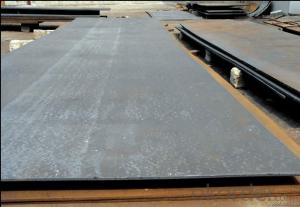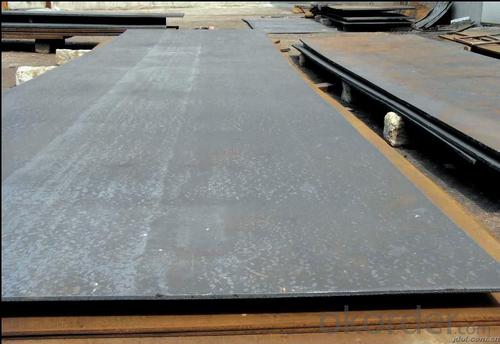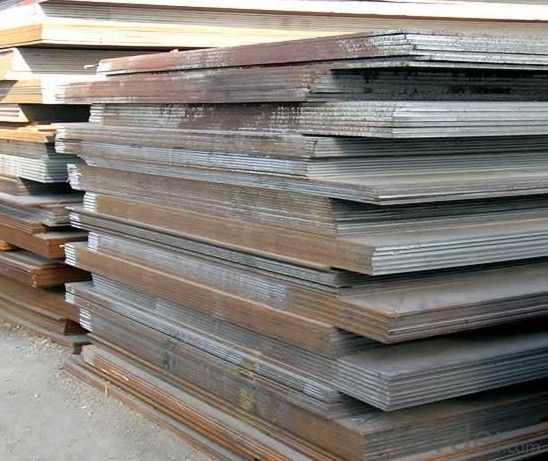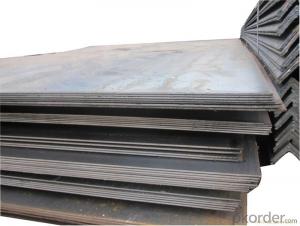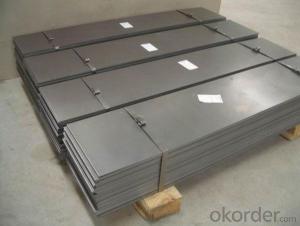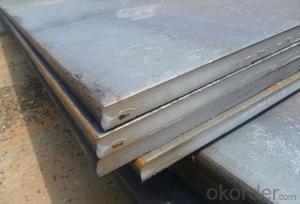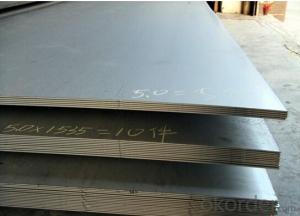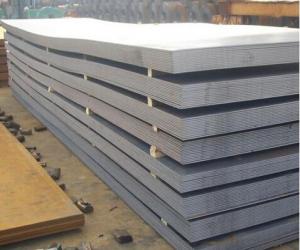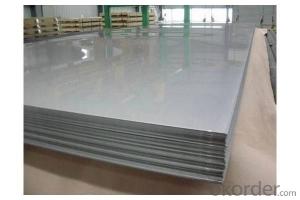Hot Rolled Mild Steel Plate ASTM A283 Carbon Steel Sheet
- Loading Port:
- China main port
- Payment Terms:
- TT OR LC
- Min Order Qty:
- 30 m.t.
- Supply Capability:
- 10000 m.t./month
OKorder Service Pledge
OKorder Financial Service
You Might Also Like
Specification
Product Information
1, Commodity: ASTM A283 Grade C Mild Carbon Steel Plate
2, Standard : AISI,ASTM,BS,DIN,GB,JIS
3, Material Grade: ASTM A36, A283Gr.C ,SS400,SPHC ,Q195/235/345,S235JR
4, Thickness: 1.5-200mm
5, Width: 1000-3000mm
6, Length: 1-12m
7, Surface treatment: Coated or Blasting and painting
8, Quality: MTC will be provided with goods, third part inspection is acceptable, for example
BV,SGS.
Commodity | ASTM A283 Grade C Mild Carbon Steel Plate |
| Standard | AISI,ASTM,BS,DIN,GB,JIS |
| Grade | A36,AH36,A283 Gr.C,SS400,S235J1/S235J2/S235JR, S275J1/S275J2/S275JR,A516 Gr.60/A516 Gr.70,ST37-2 |
| Thickness | 1.5-200mm |
Width | 1000mm 1200mm 1250mm 1500mm 2000mm 2500mm 3000mm |
Length | 1-12m |
MOQ | 1 ton |
Surface | Clean,Coated ,Blasting and painting |
Payment terms | T/T or L/C |
Delivery terms | FOB/CFR/CIF |
Delivery time | Within 10-30 days after received the deposit or as client requirement |
Packing | Standard seaworthy export packing |
Shipping | length below 5.8m with 20' container,length below 11.8 with 40' container,or bulk shipping. |
Supply ability | 5000 ton per month |
Application | Widely used in petrochemistry,chemistry,electricity,boiler and vessel manufacture,and could be made into reactor,heat exchange facility,segregator,sphere vessel,oil tank,liquid gas storage tank, nuclear reactor press shell,turbine and other machines |
Product Show
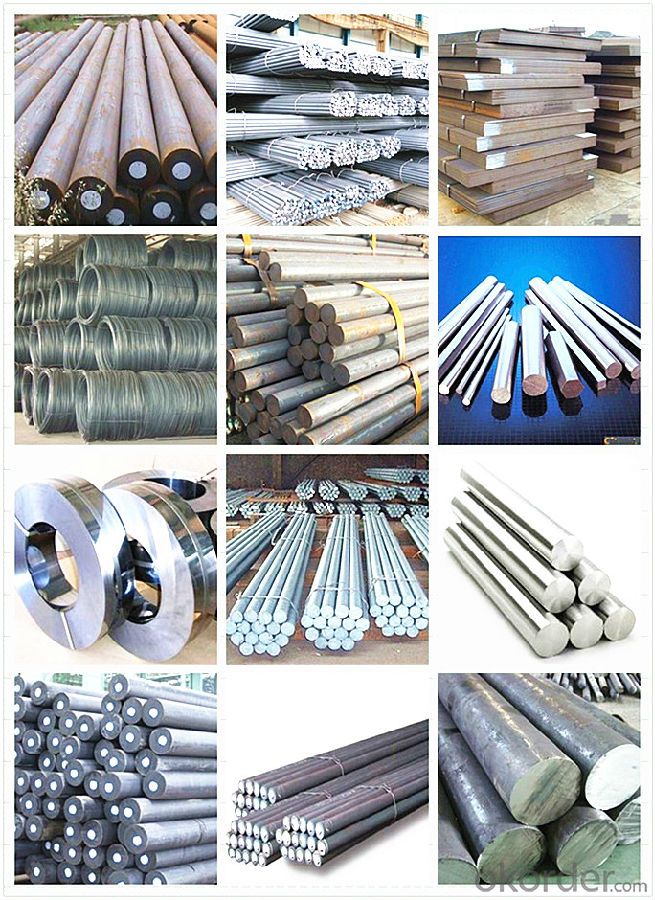
Workshop Show
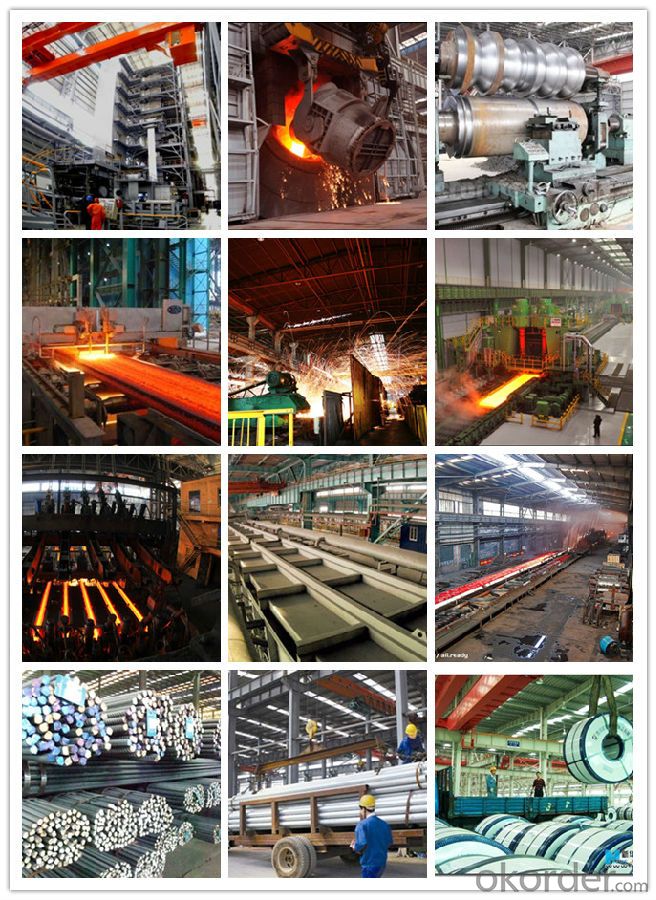
Shipping
1. FedEx/DHL/UPS/TNT for samples, Door-to-Door;
2. By Air or by Sea for batch goods, for FCL; Airport/ Port receiving;
3. Customers specifying freight forwarders or negotiable shipping methods!
Delivery Time: 3-7 days for samples; 5-25 days for batch goods.
Payment Terms
1.Payment: T/T, L/C, Western Union, MoneyGram,PayPal; 30% deposits; 70% balance before delivery.
2.MOQ: 1pcs
3.Warranty : 3 years
4.Package Informations: 1) EXPORT, In 20 feet (GW 25 ton) or 40 feet Container (GW 25 ton)
2)as customer's requirement
Why choose us?
(1) The leading exporter in China special steel industry.
(2) Large stocks for various sizes, fast delivery date.
(3) Good business relationship with China famous factories.
(4) More than 7 years steel exporting experience.
(5) Good after-sales service guarantee.
- Q: What are the properties of nickel-based alloys?
- Nickel-based alloys possess a range of desirable properties including high strength, excellent corrosion resistance, good thermal stability, and exceptional resistance to high temperatures and harsh environments. These alloys also exhibit good toughness, ductility, and resistance to cracking, making them ideal for various applications such as aerospace, chemical processing, and marine industries. Additionally, nickel-based alloys can be easily fabricated and offer exceptional resistance to both oxidation and reduction, making them highly versatile and widely used in a multitude of industries.
- Q: What are the different passivation techniques used for special steel?
- There are several passivation techniques used for special steel, including chemical passivation, electrochemical passivation, and mechanical passivation. Chemical passivation involves the use of acidic solutions to remove impurities from the steel's surface and create a passive oxide layer. Electrochemical passivation utilizes an electrical current to form the protective oxide layer on the steel's surface. Mechanical passivation involves processes such as shot blasting or grinding to remove contaminants and improve the surface quality of the steel. These techniques help enhance the corrosion resistance and overall performance of special steel.
- Q: How does special steel perform in terms of electrical resistivity?
- Special steel typically has higher electrical resistivity compared to other types of steel. This means that it offers greater resistance to the flow of electric current, making it less conductive.
- Q: What are the challenges in machining special steel alloys?
- Special steel alloys pose several challenges when it comes to machining, primarily due to their unique properties and characteristics. The first major challenge is their high hardness, which is often enhanced through heat treatment to improve mechanical properties. As a result, traditional cutting tools wear out quickly or become dull, making it difficult to machine these alloys. Additionally, the high hardness increases the risk of tool breakage, leading to frequent tool changes and increased production downtime. Another challenge is the presence of abrasive elements in special steel alloys, such as chromium, tungsten, or vanadium. These elements can cause rapid tool wear and degradation, resulting in reduced cutting tool life and higher machining costs. Moreover, if not managed properly during the machining process, these abrasive elements can lead to poor surface finish and dimensional accuracy. Furthermore, special steel alloys have low thermal conductivity, making it challenging to dissipate the heat generated during machining. This can result in high temperatures at the cutting zone, causing thermal expansion and distortion of the workpiece. The heat also affects the cutting tool, reducing its efficiency and lifespan. Effective heat management is crucial to prevent workpiece deformation and maintain dimensional accuracy. Moreover, these steel alloys are prone to work hardening, meaning they become harder and more difficult to cut as the machining process progresses. Work hardening leads to increased cutting forces, tool wear, and reduced surface finish. To overcome this challenge, machining parameters such as cutting speed, feed rate, and depth of cut must be carefully optimized to avoid excessive work hardening. In conclusion, machining special steel alloys involves overcoming challenges such as high hardness, abrasive elements, low thermal conductivity, and work hardening. To address these challenges effectively, manufacturers need to use specialized cutting tools, efficient cooling and lubrication systems, optimize machining parameters, and carefully select machining strategies. By doing so, accurate and efficient machining of special steel alloys can be achieved.
- Q: Can special steel be used in the oil and gas industry?
- Yes, special steel can be used in the oil and gas industry. It is often utilized in the construction of pipelines, drilling equipment, and offshore platforms due to its high strength, corrosion resistance, and ability to withstand extreme temperatures and pressures.
- Q: Can special steel be used in the production of precision instruments?
- Yes, special steel can be used in the production of precision instruments. Special steel alloys possess excellent mechanical properties, such as high strength, hardness, and corrosion resistance, making them suitable for manufacturing precision instruments that require high accuracy and durability. Additionally, special steel can be tailored to specific applications, allowing for customized properties to meet the unique requirements of precision instruments.
- Q: What are the different stamping grades of special steel?
- The different stamping grades of special steel include stainless steel, high-strength steel, tool steel, and alloy steel. Each grade has unique properties and characteristics that make them suitable for various stamping applications.
- Q: Can special steel be used in the production of artistic sculptures?
- Yes, special steel can definitely be used in the production of artistic sculptures. Special steel, which refers to steel alloys that have been specifically designed and manufactured for particular applications, offers a wide range of advantages that make it suitable for creating sculptures. Firstly, special steel alloys provide exceptional strength and durability, allowing sculptors to create large and intricate structures that can withstand external forces and environmental conditions. This strength and resilience is crucial, especially for outdoor sculptures that are exposed to weather elements such as rain, wind, and extreme temperatures. Additionally, special steel alloys offer versatility in terms of shaping and forming. They can be easily molded and manipulated into various shapes and sizes, which allows artists to bring their creative visions to life. Sculptors can utilize different techniques such as welding, cutting, and bending to shape the steel into their desired forms, enabling them to create unique and captivating sculptures. Moreover, special steel alloys can be finished in various ways, such as polishing, painting, or coating, to enhance their aesthetic appeal. This allows artists to add different textures, colors, and surface finishes to their sculptures, further enhancing their artistic value. Furthermore, special steel alloys can also provide resistance to corrosion, which is particularly important for sculptures that are placed in outdoor or humid environments. This corrosion resistance ensures that the sculptures retain their visual appeal and structural integrity over time, reducing the need for frequent maintenance and repairs. In conclusion, special steel offers a wide range of advantages that make it an excellent choice for the production of artistic sculptures. Its strength, versatility, aesthetic appeal, and resistance to corrosion provide artists with the necessary tools to create visually stunning and durable sculptures that can be enjoyed for years to come.
- Q: Can special steel be used in the recycling industry?
- Yes, special steel can be used in the recycling industry. Special steel, also known as alloy steel, is often used in the manufacturing of various products, including automobiles, construction materials, and industrial equipment. When these products reach the end of their life cycle, special steel can be recycled and reused in the production of new goods. The recycling industry plays a crucial role in reducing waste and conserving resources, and special steel can contribute to this sustainable practice.
- Q: What are the main applications of special steel in the mining processing?
- Special steel has several important applications in the mining processing industry. It is commonly used for manufacturing durable and corrosion-resistant equipment such as conveyor belts, crushers, and drill bits. Special steel's high tensile strength and hardness make it ideal for constructing heavy machinery that can withstand the harsh conditions of mining operations. Additionally, its resistance to heat and abrasion makes it suitable for lining chutes and hoppers, as well as for fabricating screens and sieves. Overall, special steel plays a critical role in enhancing the efficiency, reliability, and safety of mining processes.
Send your message to us
Hot Rolled Mild Steel Plate ASTM A283 Carbon Steel Sheet
- Loading Port:
- China main port
- Payment Terms:
- TT OR LC
- Min Order Qty:
- 30 m.t.
- Supply Capability:
- 10000 m.t./month
OKorder Service Pledge
OKorder Financial Service
Similar products
Hot products
Hot Searches
Related keywords
